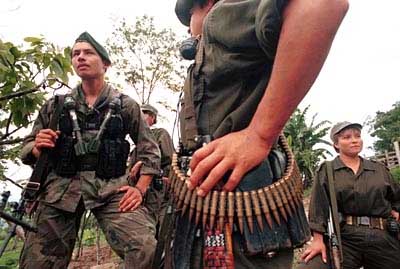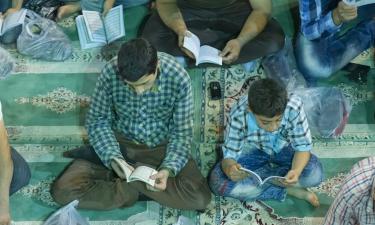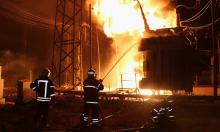Venezuela halts ties with Colombia over guerrilla leader kidnapping
Caracas took the decission to protest a Colombian special operation in which a top FARC leader was arrested from Venezuelan soil
Tension between Colombia and Venezuela steamed up last weekend, as Caracas announced the halting of bilateral accords and business deals to protest a special operation of the Colombian police in which the foreign relations chief of the Colombian FARC rebel group was kidnapped from Venezuelan soil. Colombian President Alvaro Uribe, in turn, offered to meet his Venezuelan counterpart, Hugo Chavez, but refused to apologise for the operation.
"I have ordered all agreements and business with Colombia to be stopped," Mr Chavez said in a speech to the National Assembly. He did not immediately clarify whether he was referring to all bilateral trade or just government-to-government agreements and business deals.
Caracas also recalled its ambassador to Bogota, as Chavez announced the move would freeze a joint official bilateral project by the two countries to build a cross-border gas pipeline. "The ambassador will not return until the Colombian Government apologises," he said.
First, Colombia said special forces had captured Rodrigo Granda – FARC's foreign relations chief - in Colombia last December, but later admitted they had paid a reward to get him from Caracas. Venezuela believes the act is a provocation, which violates its sovereignty.
According to different sources, Colombia's officials admits Bogota committed a crime by bribing top ranked Venezuela’s anti-kidnap squads to get a clean area for the operation. However, Colombia wants to discuss the issue in multilateral forums such as the Ibero-American Group or the Andean Community of Nations, in which other leaders could take part.
Analysts said the deadlock reflected the conflicting positions of Mr Uribe and Mr Chavez toward US policies on regional security and counter-terrorism.
Last year, a number of border clashes between Venezuela's Army and Colombian irregular forces left tens of deaths and steamed up tensions between both South American neighbours. Also, the recent acquisition by Venezuela of high-tech Russian weaponry grew concern over Colombia's military, well equipped by its US ally.
While Mr Chavez did not break diplomatic ties with Bogota, his sanctions may threaten future trade. Venezuela, the world's fifth largest oil exporter, is Colombia's second-largest export market, with bilateral trade totalling about $US2.4 billion last year.
Subscribe to Pravda.Ru Telegram channel, Facebook, RSS!




